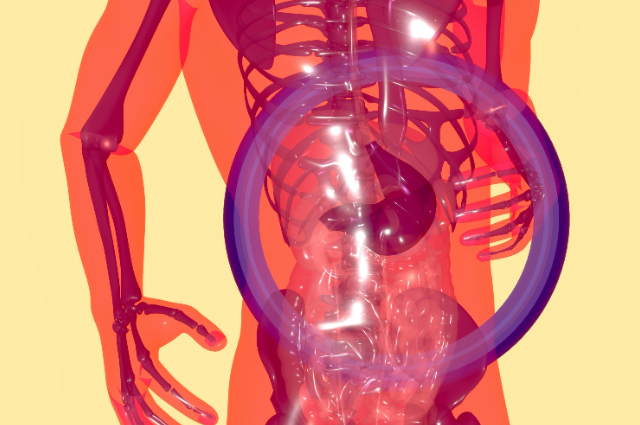
Photo by julien Tromeur on Unsplash
A groundbreaking study published in the journal Science Immunology has uncovered a remarkable link between inherited disorders of the immune system and metabolism. The findings suggest that these two seemingly distinct areas of medicine are more closely intertwined than previously believed, potentially leading to improved patient care and the development of novel therapies.
Uncovering the Overlap
The study led by Andrew Patterson, PhD, a former postdoctoral fellow at Vanderbilt University Medical Center, focused on analysing the genes responsible for inborn errors of immunity and inborn errors of metabolism. These rare and complex disorders affect the immune system's function and the cellular processes that convert food into energy, respectively.
Surprisingly, the researchers found that a significant number of genes are associated with both types of diseases, suggesting a previously unrecognized overlap. This discovery challenges the traditional view of these disorders as separate entities opening up new avenues for understanding and treating these conditions.
Implications for Patient Care
The findings have important implications for patient care. Patients with an inborn error of metabolism may also have undiagnosed immune defects that could impact their treatment. Conversely, metabolic defects may contribute to symptoms in patients with inborn faults of immunity. By recognizing these connections, healthcare professionals can provide more comprehensive and targeted care for individuals affected by these rare disorders.
A Continuum of Disorders
Jeffrey Rathmell, PhD, Cornelius Vanderbilt Professor of Immunobiology and director of the Vanderbilt Center for Immunobiology, emphasizes that these diseases are part of a variety rather than distinct categories. He suggests that a "grey zone" exists between them, potentially leading to the identification of a new class of disorders called "inborn errors of immunometabolism" that intersect both immunity and metabolism.
Uncovering New Mechanisms
The research team employed a gene-editing CRISPR approach to screen the genes associated with inborn errors of metabolism for immune defects and vice versa. By analyzing specific examples in detail, they uncovered new biological mechanisms and pathways that link metabolism and immunity.
Laying the Foundation for Future Research
This study lays the groundwork for further investigation into the connections between metabolism and immunity. The researchers have identified hundreds of genes that warrant analysis for their roles in T cell function, a crucial component of the immune system.
Collaborations and Future Directions
The study was a collaborative effort involving researchers from various disciplines, including Vivian Gama, PhD, associate professor of Cell and Developmental Biology and Janet Markle, PhD, assistant professor of Pathology, Microbiology and Immunology at Vanderbilt University.
As Andrew Patterson transitions to his new role as an assistant professor of Biochemistry and Molecular Genetics at the University of Louisville, he emphasizes the significance of this research in understanding the intricate relationship between metabolism and immunity. By shedding light on this overlooked connection, the study opens up new avenues for targeted therapies and personalized medicine for individuals affected by these rare and complex disorders.
The Power of CRISPR: Unlocking the Secrets of Gene Defects
In a groundbreaking revolution, CRISPR technology has transformed the field of genetics empowering scientists to identify and study gene defects with unprecedented precision. This innovative approach enables researchers to manipulate DNA sequences with ease, shedding light on the intricate relationships between genetic mutations and human health.
At the heart of CRISPR lies the CRISPR-Cas9 system, a dynamic duo comprising the Cas9 enzyme and guide RNA (gRNA). This precision editing tool allows scientists to disrupt genes, simulate natural mutations and conduct high-throughout screening, unlocking the secrets of genetic mutations and their role in disease.
CRISPR's impact extends beyond identifying gene defects as it establishes vital connections between genetic variations and observable traits. By manipulating genes and observing outcomes, researchers can decode the complex interactions between genes, revealing pathways involved in disease processes.
As CRISPR continues to evolve, its integration with advanced sequencing technologies will further enhance its effectiveness. With improved sequencing methods, researchers can gather comprehensive data on genetic variations by paving the way for targeted therapies and personalized medicine.
CRISPR is a powerful tool that holds immense promise for advancing genetic research and therapeutic development. As scientists continue to explore its potential, we may witness significant breakthroughs in treating genetic diseases and improving patient outcomes. The future of genetics has never looked brighter, thanks to the revolutionary power of CRISPR.
Boosting Immunity the Healthy Way
In today's market, many products claim to boost or enhance the immune system. However, from a scientific perspective, the idea of "boosting" immunity is quite misleading. It might seem beneficial to increase the number of immune cells or other cells in the body, but this isn't always the case. For instance, athletes who practice "blood doping"—where they inject extra blood to increase their red blood cells and improve performance—are at a higher risk of experiencing strokes due to this artificial enhancement.
When it comes to boosting immune cells, the situation becomes even more complex. The immune system comprises various types of cells that react to different pathogens in numerous ways. The big question remains: which specific cells should be increased and to what extent? At present, scientists have not found definitive answers. What we do know is that the body constantly produces immune cells, generating far more lymphocytes than it can use. These surplus cells are eliminated through apoptosis, a natural process where cells die. Some of these cells die without ever being utilized, while others are removed after successfully combating infections. However, no one fully understands the exact number or the ideal balance of immune cells required for the immune system to function optimally.
Immunity and Aging
As people grow older, their immune systems gradually weaken, leading to an increased susceptibility to infections and cancer. With the rise in life expectancy in developed nations, there has also been a corresponding increase in age-related health issues.
. . .
References:
